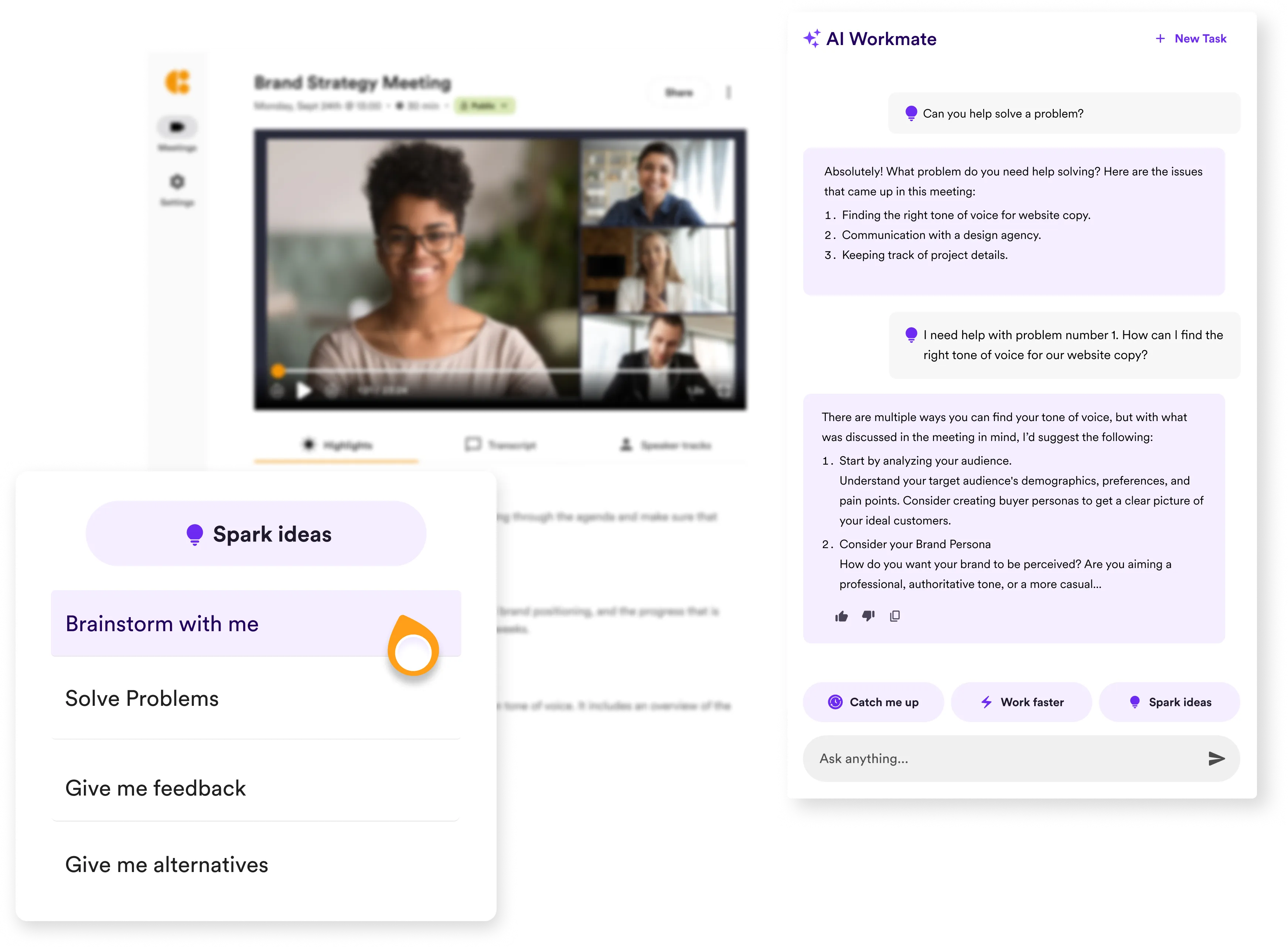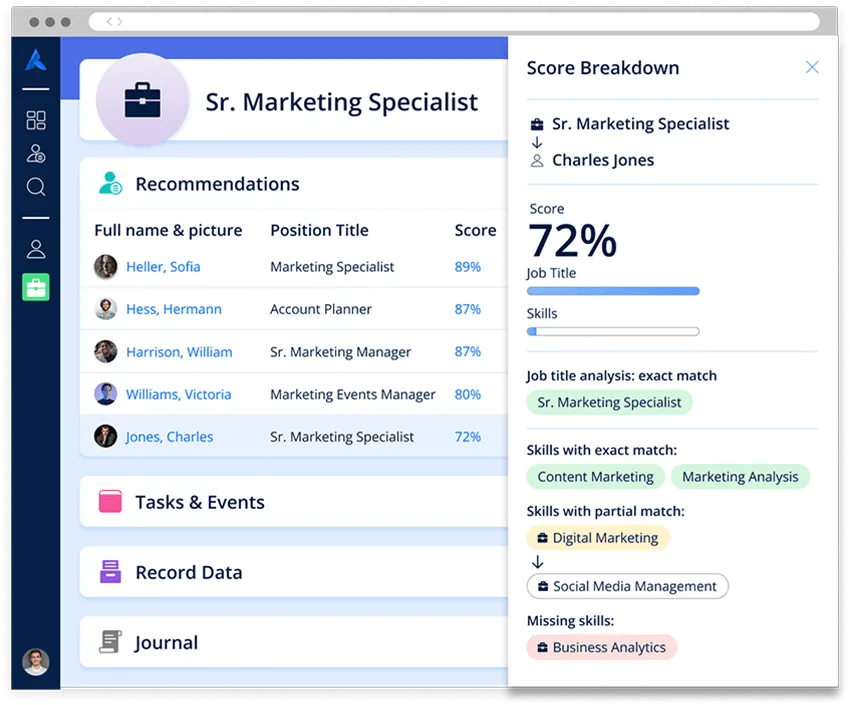Interview scorecard : a guide with template

As a recruiter, you want to evaluate your interviews by going beyond intuition and relying on precise data.
The interview scorecard provides you with a structured, objective method of scoring.
It's a tool that's gaining traction because it is increasingly integrated into ATS on the market.
Here's how the scoring sheet can help you align your teams with precise, objective skill evaluation criteria.
What is an interview scorecard?

An interview scoring sheet is a table or checklist that helps you clearly define your expectations for the position. From specific skills to selection criteria, it enables you to evaluate your candidates with a structured, quantified assessment.
It was popularized by Geoff Smart in his groundbreaking book "Who - The A method for hiring". In it, Smart reveals how to attract the best talent and keep them on your team by documenting your recruitment method. He conceived the scorecard as a means of translating assessment strategy onto paper, promoting informed, objective decision-making.
The scorecard has become a cornerstone of modern recruitment strategies. It doesn't just assess skills; it helps recruiters build winning teams, united by common goals and a shared vision.
It is now integrated into the interfaces of the most prominent Applicant Tracking Systems (ATS) on the market. In your ATS, every application received is automatically evaluated according to the criteria defined in your scorecard.
No need to spend hours going through each CV to see if key skills are mentioned anywhere. ATS does it for you, highlighting the candidates who best match your expectations.
The benefits of interview scorecard
The scorecard offers recruiters a number of key benefits:
1. Precise recruitment. With the scorecard, no more vagueness and approximation. Each position to be filled is associated with a precise list of objectives, skills and expected results. This means you're not just looking for a "good candidate", but "the candidate" who fits the job perfectly.
2. Objectivity at its best. With the scorecard, objectivity takes center stage. Each candidate is evaluated according to the same criteria, rigorously defined upstream. This eliminates bias and ensures a fair selection process. Everyone has a chance, and it's only the fit with the job that counts.
3. Measurability in the spotlight. With the scorecard, every aspect of the candidate you're evaluating becomes quantifiable. We're no longer talking about "good impressions" or "feelings". No, we're talking scores, skill levels, degrees of fit with the job's objectives. At a glance, you can compare the scores of your candidates, see who excels in what area, who best matches the job requirements.
4. Optimize your past recruitments: the data collected thanks to the scorecard can be used to analyze your past recruitments. They enable you to realize that certain skills you considered crucial aren't actually so decisive for success in the job. Or, on the contrary, that qualities you had put at the bottom of your list are actually major assets for your company. By evolving your scorecard according to the results obtained, you refine your search for talent.
5. Improved candidate experience. The scorecard, by structuring the interview and clarifying expectations, contributes to a positive candidate experience. Even those who are not selected receive precise feedback and leave with a favorable impression.
6. Monitoring employee development. The scorecard doesn't have to stop at hiring. It also serves as a reference for monitoring your employees' development. Have they achieved their objectives? Does it still correspond to the skills required? It's a good tool for performance appraisals and aligning career paths with business needs.
What elements should be included in an interview scorecard?

Now it's time to put your recruitment scorecard into practice. Here are the main elements to add to it:
1. Skills required for the job.
First step: list precisely the skills required for the position to be filled. Recruiting a web developer? Be sure to include specific technical skills such as mastery of certain programming languages. For a management position, leadership and communication skills will be crucial. This list is your guide to evaluating each candidate.
2. An illustrated rating scale for each skill.
For each skill listed, you'll use a scale from 1 to 5 to rate candidates, with a concrete illustration for each rating level. Here's what it might look like:
- 1: Beginner. The candidate has basic theoretical knowledge, but no practical experience.
- 2: Intermediate. The candidate has a little experience, able to carry out simple tasks with supervision.
- 3: Confirmed. Able to carry out complex tasks independently.
- 4: Advanced. The candidate has solid experience, can supervise projects and initiate innovations.
- 5: Expert. Authority in the field, able to define strategies, train others and lead large-scale projects.
3. A coefficient by order of priority for each skill.
Not all skills are equal for a given position. Some will be indispensable, others simply desirable. Assign a coefficient to each skill to reflect its importance.
For example, for a front-end developer position, mastery of React might have a coefficient of 5 (indispensable), while knowledge of Photoshop might be a plus, but with a coefficient of 2.
Example of a recruitment scorecard template
Based on the elements in Part 3, here's a simplified scorecard template you can use to assess your candidates. You can also download it here.
Which ATS integrate interview scorecard natively?

Modern Applicant Tracking Systems (ATS), such as Recruitee, Digital Recruiter, Greenhouse, Intuition Software, Workable, BambooHR integrate scorecard functionality directly into their candidate list interface.
How does it work?
In the candidate listing interface of these platforms, you can create customized scorecards for each vacancy. For each candidate, you fill in the scorecard according to expected skills, using rating scales and assigning priority coefficients, as discussed above.
This allows you to easily compare candidates directly on your ATS, based on concrete data rather than subjective impressions.
Automated interview scorecard: the Noota assistant

Noota automatically integrates interview data into your scorecard. It transcribes interviews, extracts structured summaries and automatically sends relevant data directly to your preferred ATS.
Every word spoken by the candidate instantly enriches your scorecard. No need to frantically take notes or rely on your memory to evaluate candidates' skills and answers.
The benefits are clear:
- Greater accuracy in your assessments. Thanks to the direct integration of interview data into the scorecard, every answer, every skill mentioned, every example given by the candidate is captured and assessed in the appropriate context. This means that your assessment is based on concrete data, reducing the risk of oversights or subjectivity in assessing the candidate's skills and performance.
- A considerable time-saver. No need to transcribe interviews or manually enter data into your system. Everything is automated, allowing you to focus on candidate analysis and decision-making, rather than administrative management.
- Continuous evolution of selection criteria. You now have a wealth of information to refine your recruitment criteria over time. By analyzing the data collected from previous interviews, you can identify trends, emerging key skills, or qualities that are particularly valued within your company, enabling you to adjust your scorecards to make them even more effective.
Want to improve the accuracy of your interview assessments and recruit candidates who best match your company's needs and culture? Try Noota for free.
Leverage your Interview Data
AI interview notes, scorecard, follow-up, ATS integration, and more...
Related articles

Forget note-taking and
try Noota now
FAQ
In the first case, you can directly activate recording as soon as you join a videoconference.
In the second case, you can add a bot to your videoconference, which will record everything.
Noota also enables you to translate your files into over 30 languages.

.svg)
.svg)
.webp)

.png)


.svg)
